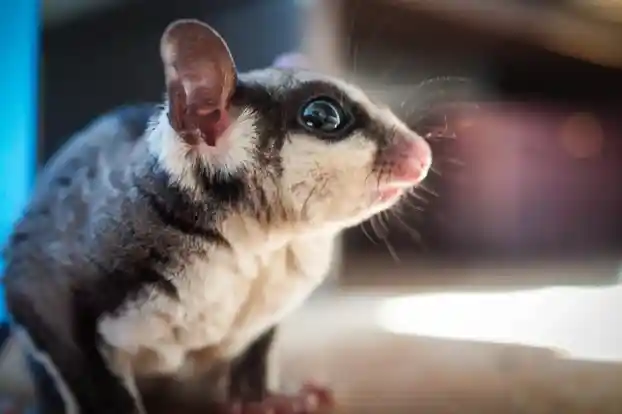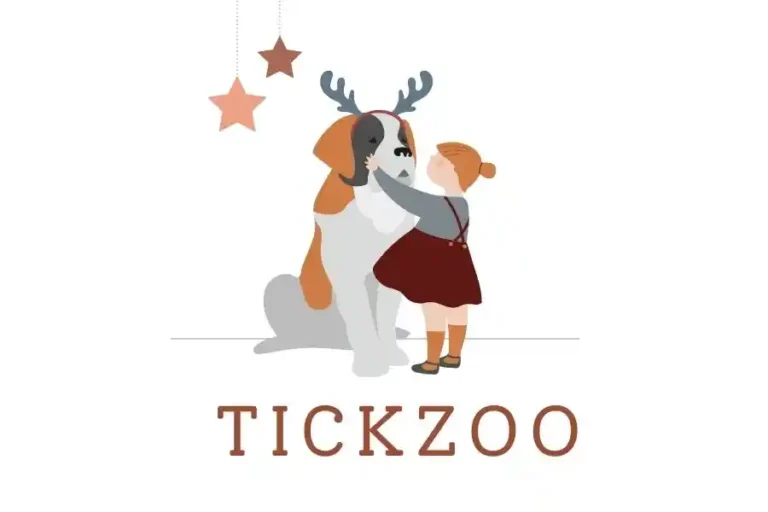“Exploring the Diverse World of Pets: A Comprehensive Guide to Different Types of Pets Companions”

This article is very helpful for you if you want to know about the world of pets. You can read about different kinds of pets like dogs, cats, birds, and many more here. Here you can also learn how to pick and care for your pets and create friendly relations with them.
Owners of pets experience happiness, camaraderie, and even health benefits. They come in a wide variety of dimensions, shapes, and species to meet the wide diversity of preferences and lifestyles of people.
In this thorough article, we will go extensively into the world of pets, looking at various breeds, how to care for them, and any possible benefits they may provide for everyday life.
Some Statistics about Types of Pets
In the U.S., dogs are the most common breed of pet. 67% of American families, according to the American Pet Products Association (A.P.P.A.), have dogs.
In the U.S., cats are the second-most common breed of pet. 46% of American families, according to the A.P.P.A., have cats.
In the U.S., fish are the third most common form of pet. The A.P.P.A. estimates that 13% of U.S. households own fish.
In the United States, birds are the fourth most popular pet form. According to the A.P.P.A., 8% of American households have birds.
Reptiles are the fifth most popular form of pet in the U.S. According to the A.P.P.A., 4% of American households have reptiles.
What are the top 10 pets?
Depending on regional preferences, cultural distinctions, and individual lifestyles, these pets may or may not be well-liked. The top 10 animals that have won over the hearts of many people all across the world are listed below.
1. Dogs: Due to their loyalty, intelligence, and a massive range of breeds, dogs are the most beloved pets in the world. It is simple for people and families to find the ideal match for their lifestyle because they come in a variety of sizes and temperaments.
2. Cats: Independent and mysterious, cats have captivated human fascination for centuries. They make excellent companions for both young and old due to their low maintenance requirements, devotion, and amusing behaviors.
3. Fish: Fishkeeping is a popular hobby, with colorful and exotic species adorning aquariums. Their tranquil presence has a calming effect, and caring for fish can be a rewarding experience.
4. Birds: From parrots and canaries to budgies and finches, birds bring vibrancy and song to households. Many bird species are highly intelligent and can be trained to do tricks and mimic speech.
5. Rabbits: Rabbits are gentle, social creatures that have become increasingly popular as pets. They require proper care and attention, but their playful nature and adorable appearance make them well-loved companions.
6. Guinea Pigs: These small rodents are gentle, affectionate, and relatively easy to care for, making them popular choices for families with young children or limited space.
7. Hamsters: As nocturnal creatures, hamsters are ideal pets for those with busy daytime schedules. They are cute, tiny, and their antics in exercise wheels are entertaining.
8. Reptiles: Some people are drawn to the allure of reptiles as pets. Common reptilian pets include snakes, turtles, and geckos. Proper knowledge and care are essential when considering reptile ownership.
9. Ferrets: Ferrets are highly energetic and curious animals. They form strong bonds with their owners and can be entertaining with their playful behavior.
10. Horses: Horses are incredible companions for those with space and resources. They require extensive care and maintenance, but the rewards of riding, training, and forming a deep connection with these majestic animals are unparalleled.
Different Types of Pets
1. Dogs
Because dogs have always been the most popular and well-known pets worldwide, the label of “man’s best friend” is well-deserved.
As to the American Pet Products Association (A.P.P.A.), there are dogs in 67% of American households.
Dogs come in a wide range of sizes, from very few Chihuahuas to massive Great Danes, each with a distinctive character and collection of traits.
Care Requirements: Dogs need regular exercise, mental stimulation, proper nutrition, and frequent trips to the vet when it comes to looking after them. Training and socialization are also crucial for a canine companion who is well-behaved and well-adjusted.
Companionship Benefits: Dogs offer unwavering loyalty, love, and emotional support. They can enhance mental health by lowering stress and anxiety and promoting physical exercise through play and walks.
2. Cats
According to the A.P.P.A., cats are the second most common pet in the United States, with 46% of families owning one. The autonomous and enigmatic reputation that cats have only served to increase their attractiveness.
Care Requirements: Cats require adequate nourishment, regular medical checkups, and a clean litter box, even though they are lower maintenance than dogs. Cats also benefit from interactive toys and scratching posts to fulfill their instincts.
Companionship Benefits: Cats are known for their calming presence and can help lower stress levelsEndorphins are known to be released during cat petting, enhancing enjoyment and relaxation.
3. Fish
Approximately 13% of Americans say their favorite hobby is keeping fish. Fish tanks add a touch of tranquility and beauty to any space, and watching colorful fish glide through the water can be incredibly soothing.
Care Requirements: Proper aquarium setup is crucial for fish health. It includes maintaining the right water conditions, providing adequate filtration and lighting, and choosing suitable tankmates. Different species have specific dietary and environmental needs, so research is essential.
Companionship Benefits: While fish may not offer interactive companionship like dogs or cats, their presence can be calming, reducing stress and anxiety. Fishkeeping can also teach responsibility and patience.
4. Birds
Birds make for fascinating and charismatic pets, with approximately 8% of U.S.U.S. households owning these feathered companions, according to the A.P.P.A. From the cheerful chirping of canaries to the intelligence of parrots, birds come in various species and sizes.
Care Requirements: Birdcare involves providing a spacious cage, a balanced diet, regular mental stimulation, and regular visits to an avian veterinarian. Some bird species require social interaction and mental challenges to thrive.
Companionship Benefits: Birds can be excellent companions, especially for individuals who enjoy interactive and vocal pets. They can mimic sounds, learn tricks, and form strong bonds with their owners.
5. Rabbits
With their endearing charm and gentle nature, Rabbits have gained popularity as beloved pet companions worldwide. These adorable creatures are social and intelligent and can form strong bonds with their owners. While some people may associate rabbits with Easter and cartoons, they are more than just cute animals.
Rabbits belong to the Leporidae family and come in various breeds, each with distinct appearances, sizes, and temperaments. Common domesticated species include the Holland Lop, Netherland Dwarf, Mini Rex, and Flemish Giant. With their soft fur, long ears, and twitchy noses, they make delightful pets for individuals and families alike.
Rabbits are social animals that thrive on companionship. Keeping them in pairs or small groups is recommended to prevent loneliness and boredom. Their curious and playful nature makes them entertaining to watch, especially during their zoomies, where they run and leap in bursts of energy. They can also form strong bonds with their human caregivers through gentle handling and interaction.
A suitable living environment is crucial for a happy and healthy rabbit. They should have ample space to hop and run around in a spacious hutch or a rabbit-proofed indoor area. Providing hiding spots and toys can enrich their environment and stimulate them mentally. Additionally, ensure they have a safe and quiet place to retreat when feeling stressed or tired.
Their diet should consist of high-quality hay, fresh vegetables, and a measured amount of rabbit pellets. The grass is particularly crucial for their dental health and digestive system. Avoid feeding them sugary treats or human food, as it can lead to health issues.
Routine veterinary checkups are vital to monitor your rabbit’s health and promptly address potential issues. As with other pets, rabbits need to be vaccinated, and spaying and neutering are advised to stop health issues and unwanted litter. Keep an eye on their teeth, as rabbits’ teeth grow continuously, and dental problems can arise if not appropriately managed.
Rabbits are generally docile animals but can be sensitive to rough handling or sudden movements. When picking them up, support their hindquarters to prevent injury and ensure they feel secure in your arms. Spending time with your rabbit, offering gentle strokes and playtime strengthens your bond and helps them feel more comfortable around you.
6. Guinea Pigs
With their charming personalities and gentle demeanor, Guinea pigs have become increasingly popular as adorable and interactive pet companions. Also known as cavies, these small rodents are native to South America and have captured the hearts of pet owners worldwide.
Guinea pigs are social animals that thrive on companionship. They belong to the Caviidae family and come in various breeds, each with unique coat patterns and fur types. Every type of guinea pig, from the smooth-coated to the long-haired Peruvian and everything in between, is available for pet owners.
The fact that guinea pigs are renowned for being affectionate and amiable is one of their most charming characteristics. They are social beings that adore interacting with people, especially when they are treated well and regularly. Due to their social nature, keeping guinea pigs in pairs or small groups is best to prevent loneliness and ensure their overall well-being.
A suitable living environment is essential for guinea pigs’ health and happiness. A spacious cage with ample room for them to run and explore is necessary. Avoid placing the cell in direct sunlight or drafty areas. Including hiding spots, tunnels, and toys in their habitat will encourage mental stimulation and play.
Guinea pigs have specific dietary needs to maintain optimal health. Their diet should consist of high-quality hay, fresh vegetables, and pellets explicitly formulated for guinea pigs. They cannot generate vitamin C on their own. Thus, it is crucial for them.
7. Hamsters
Hamsters have captured the hearts of pet lovers all around the world with their tiny stature and endearing behaviors. These small rodents are popular pets due to their low maintenance, making them ideal for individuals with busy lifestyles or limited living spaces. In this comprehensive guide, we’ll delve into the fascinating world of hamsters, exploring their characteristics, care requirements, and the joy they bring as delightful pet companions.
Hamsters belong to the Cricetidae family and come in various species, each with distinct traits. Ordinary pet hamsters include Syrian hamsters (Golden hamsters), Dwarf hamsters (Roborovski, Campbell’s, and Winter White), and Chinese hamsters. They have large cheek pouches for storing food and a nocturnal nature, most active in the evening and night.
Though small, hamsters have prominent personalities. Each species exhibits unique behaviors and temperaments. Syrian hamsters are typically more solitary and prefer to live alone, while Dwarf hamsters are more social and can live in same-sex pairs or small groups. Hamsters enjoy burrowing, running on exercise wheels, and exploring their surroundings.
A suitable living environment is crucial for a happy and healthy hamster. Provide a spacious cage with ample bedding for burrowing, hiding spots, and chew toys to keep their teeth healthy. Avoid placing the cell in direct sunlight or drafty areas, as hamsters are sensitive to temperature changes. A solid-bottom cage with good ventilation is essential to prevent injury or illness.
A balanced diet is vital to maintain your hamster’s well-being. Hamsters should eat high-quality hamster pellets as the majority of their diet because they are omnivores, along with occasional treats, fresh produce, and fruit.
Because they can lead to obesity and other health issues, giving kids fatty or sugary foods should be avoided. Regular observation is critical to monitoring your hamster’s health. Look out for any changes in behavior or appetite, as these can indicate health problems. Keep their cage clean and provide fresh water daily. Seek quick veterinarian care if you observe any illness-related symptoms, such as lethargy, breathing issues, or changes in fur or skin.
8. Reptiles
Approximately 4% of U.S.U.S. households now have a pet reptile, as reported by the A.P.P.A. These unique and fascinating creatures can be a captivating addition to the family.
Care Requirements: Reptiles have specific habitat and temperature requirements, depending on their species. Appropriate heat, lighting, and hiding spots are essential for their well-being. Diet varies among reptile species; proper nutrition is critical for their health.
Companionship Benefits: Reptiles may not offer traditional companionship like dogs or cats, but they can be captivating to observe. Caring for reptiles can also teach responsibility and the importance of understanding the needs of different species.
9. Ferrets
Ferrets are gaining popularity as entertaining pet companions because of their energetic and mischievous nature. They are delicate and curious creatures that belong to the Mustelidae family, together with weasels, minks, and otters.
Small carnivorous mammals known as ferrets have long, slender bodies and recognizable masked faces. Domesticated ferrets, known as Mustela putorius furo, have been bred selectively for centuries. They come in various coat colors and patterns, including sable, albino, cinnamon, and panda.
The lively and inquisitive temperament of ferrets is one of their most endearing characteristics. They are highly active creatures that need mental and physical activity to remain content and healthy. Ferrets are social creatures and thrive on companionship, so keeping them in pairs or small groups is advisable to prevent loneliness. Their antics and boundless energy can provide endless entertainment for their owners.
Ferrets require a spacious and secure environment to explore and play. A multi-level cage with plenty of tunnels, hammocks, and hiding spots will keep them engaged and satisfied. As they are natural burrowers, they provide soft bedding and hiding spots to mimic their wild instincts. Additionally, ferret-proofing the living space is essential, as they are skilled escape artists and can squeeze through small openings.
Ferrets are obligate carnivores, meaning that most of their diet’s protein comes from animals. High-quality commercial ferret food or kitten food is recommended, as they have specific dietary needs. Avoid feeding them dog or cat food, as it lacks the proper nutrient balance for ferrets.
Ferrets are generally social and enjoy interacting with their human caregivers. Handling them gently and providing playtime outside of their cage helps to strengthen the bond between you and your ferret. Be cautious when introducing them to other pets, as some animals may not be as tolerant of the ferret’s playful nature.
10. Horses
With their majestic beauty and powerful presence, horses have been treasured as companions and working animals for centuries. These magnificent creatures have played pivotal roles in human history, from being essential in transportation and agriculture to being valued for their companionship and therapeutic benefits.
Horses belong to the Equus genus and come in various breeds, each with distinct appearances, sizes, and temperaments. From the towering and noble Clydesdales to the elegant and swift Thoroughbreds, horses offer diverse companionship possibilities. Their strong limbs, expressive eyes, and flowing manes captivate the hearts of equestrians and animal lovers alike.
Horses are incredibly social animals with intricate communication systems. They form strong bonds with both other horses and their human caregivers. Each horse has its unique personality, ranging from gentle and calm to spirited and energetic. Building trust and mutual respect with a horse is fundamental to fostering a positive and harmonious relationship.
A suitable living environment must be provided for a horse to remain healthy. Proper shelter, such as a sturdy barn or run-in shed, protects them from harsh weather conditions. Horses need ample space for grazing and exercise, ideally in a paddock or pasture. Regular turnout and opportunities for social interaction with other horses contribute to their overall happiness.
A horse’s health and well-being depend on having a diet that is both balanced and nourishing. Their diet primarily consists of high-quality hay or pasture grass, supplemented with grains and other concentrates. Access to fresh, clean water is crucial to prevent dehydration.
Trust and respect for a horse are crucial for safe handling and riding. Building a relationship through consistent and gentle handling fosters a strong partnership. Proper training and riding techniques are required to ensure the rider and horse’s safety and well-being.
Conclusion
There are options for every lifestyle and preference in the vast and varied world of pets. From the loyal and affectionate dogs to the enigmatic and independent cats, the tranquil fish, the charismatic birds, and the unique reptiles, each type of pet brings its own set of joys and responsibilities.
When thinking about adding a pet to your family, it’s crucial to do your homework and pick a pet that fits your lifestyle, living circumstances, and capacity to offer the required care.
Although caring for a pet responsibly requires dedication, effort, and time, the benefits of companionship, love, and shared experiences with your pet are immense. So, explore the diverse world of pets, and you may find the perfect companion to bring happiness and fulfillment into your life.





